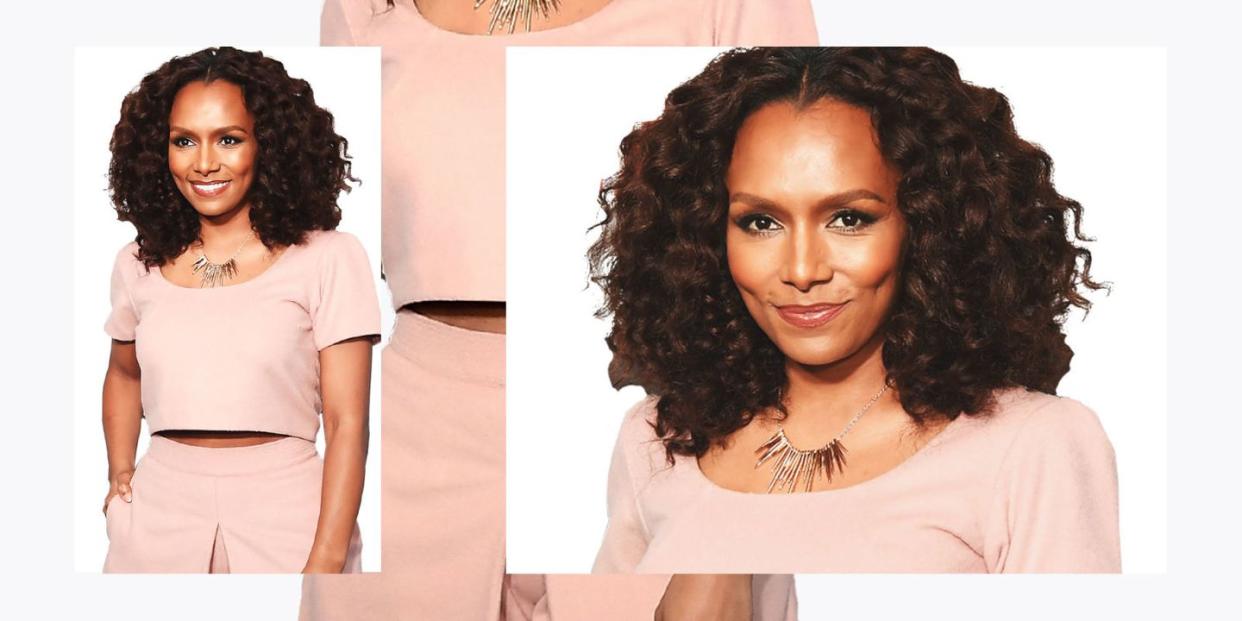Janet Mock Wants to Give You More Than a Soundbite

Janet Mock is taking the stairs at a clip. She has a little less than 10 minutes to spend and decades, if not centuries, of dangerous assumptions about trans women to upend, so she'd like to begin, okay?
We're at the Forbes Women's Summit at Spring Studios in downtown New York, where Mock will soon participate in a panel with Planned Parenthood President Cecile Richards and actress Kerry Washington to talk movement-building and activist organizing in the social media era. And though Mock has plenty to say—and does, during their conversation—she admits she's recently taken a small step back from the Twitter-verse, where she addresses an audience of over 138,000 followers, and has made it a personal rule not to go on cable television "unless I'm in the driver's seat, unless I'm the one asking the questions and crafting the conversation and shaping the way in which I want I want it to go."

"Every day it's a different negotiation," Mock explains, of her relationship with social media. When the trans community is under attack, when she hears about violence against trans women of color, in particular, Mock does feel the need to speak out. But she's given up on trying to express her fury in a tweet. When it comes to how "we think and how we are complicit [in] what happens to trans bodies, especially trans female bodies," there's more than can be "unpacked and challenged" in 140 characters, Mock says. "So I've stopped." Instead, she's literally written the book—Surpassing Certainty, out this week—on finding her voice and she's continuing to reach her audience where they are—their iPhones—with Never Before, a podcast she's launched in collaboration with Lenny Letter.
Mock has been committed to this advocacy work for years, and she's always considered it her mission to bring context and awareness to issues that her many communities may not have the precise language to talk about. During the panel, she recalls trips to visit her grandmothers, who modeled a kind of feminism for her but didn't exactly have the words to name it. The first in her family to go to college, she remembers "learning all of this jargon and then going back to the kitchen table and not necessarily knowing how to bring that jargon to them in a way that spoke to them, and so, much of the work that I do is about unpacking complicated, nuanced, multi-layered, intersectional issues in ways that people can take with them, to spread that message."
It's work, Mock adds during our conversation, that's taken on renewed urgency under the current administration—especially as she sees some of the "newly woke" choose to remain blind to the pain and violence trans people experience in their daily lives.
"[These crimes] are happening in so-called 'LGBT meccas,'" Mock says. (And to her point, just this weekend, two trans women who were attacked in Brooklyn.) "People have to realize," Mock continues, that the spaces they may assume are safe "can be taken away quite easily." And that's no surprise to trans women. "We know that this is happening in New York City, that this is happening in 'progressive cities,'" Mock says. "It's a privilege to be surprised and horrified and want to [take action]. I think what needs to happen is a shift to the overall recognition that, for so many of us, this is our every day. We hear these stories all of the time. And the truth is, so many of these stories in our communities go unreported."
Mock can't cover them all on her own, but she's come to appreciate how much she can do to draw attention to the issues that matter to her and to the trans women who've devoted their lives to the same cause she has—their survival, their rights, their respect.
It must be said here that even when she's complaining about the weather or climbing the stairs to the perch to which we've been ushered for this interview, Mock glows with the wattage of ten thousand bulbs, but when conversation turns to the women she admires in the movement, her smile threatens to leave me fully blind. Miss Major Griffin-Gracy, an "elder" of the movement, Elle Hearns, a Black Lives Matter organizer, Raquel Willis, an activist at the Transgender Law Center and a "media maven on the make"—these are women whose names she wants me to memorize. "My job is to deepen the bench and to speak the names and to ensure that when I come into these spaces, I bring my people in with me," Mock says. "I want to leave the door open on the way out."
You Might Also Like
